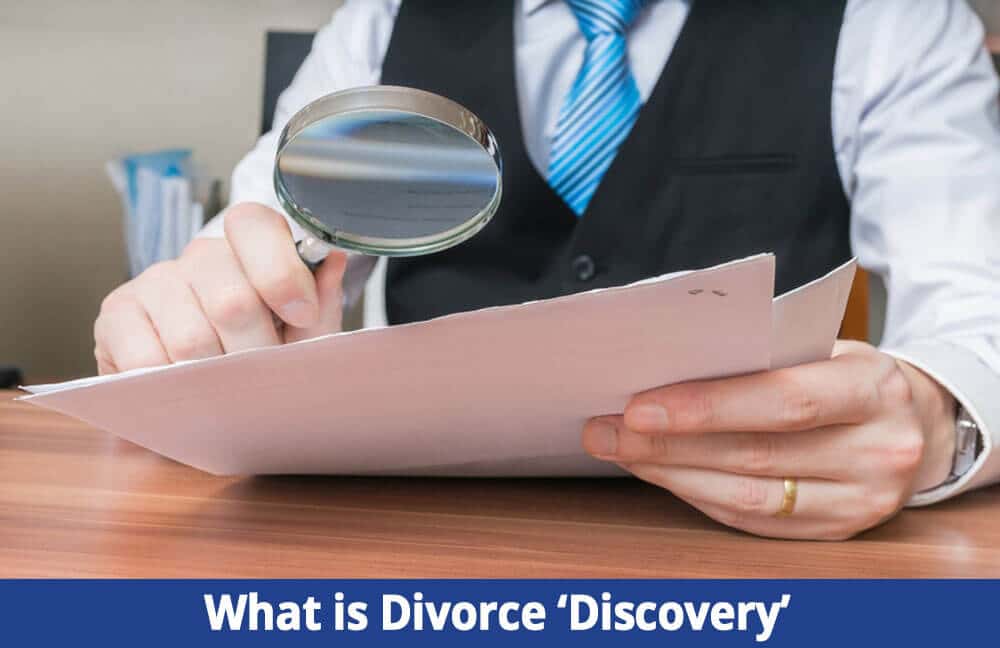What Is Divorce Discovery in a Long Island Divorce?

If you’re considering dissolving your marriage or are going through the initial stages of getting a divorce, you may have heard the term “discovery.” All legal cases include the process of discovery, however, what this looks like differs between different types of cases. Discovery for a criminal case is a significantly different procedure from discovery in a family law case. Here’s what you should know about divorce discovery in a Long Island divorce and how to get the legal help you need to protect your family’s best interests during a divorce.
What Is Divorce Discovery?
The simplest definition of discovery from a legal perspective is that it’s the process of finding the supporting documentation and evidence you need to build your case. In a criminal case, discovery is synonymous with the investigation, where police look for evidence connecting the crime to a suspect. In family law legal cases, discovery is usually conducted by the spouses themselves and/or their attorneys but follows the same thought process: the objective is to obtain as much evidence as possible to paint an accurate picture of your position in the divorce.
Information Collected During the Divorce Discovery Process
There are many different types of evidence and information that can be collected during the process of divorce discovery, including but not limited to:
Joint Marital Property Data
This includes the known location and value of marital property, including housing, vehicles, stocks and bonds, jewelry, and other shared assets. If you acquired property or money during your marriage, even if you put it in your name only, this is considered joint or marital property.
Separate Property Data
You can also obtain information about separate property that one spouse may own in their own name. Separate property isn’t subject to New York equitable distribution laws, however, this data becomes critical in a divorce case when determining what kind of assets each spouse has that impacts how well they are able to move forward independently.
Witness Statements and Reports
Part of the discovery process includes determining if there are any statements or reports from witnesses on either side of the case. For example, if a neighbor witnessed an incident of domestic violence and provided a statement to the police at the time, both parties in the divorce should have access to the written copy of the statement. Expert witness statements may also be obtained by professionals who are qualified to go on record regarding how much income each spouse has the ability to generate and how realistic it is that they can obtain additional training to increase that figure.
Income and Employment Information
Each spouse should have full access to income and employment information, including but not limited to 1099s, W2s, job contracts, retirement funds, tax returns, employee stocks, and bonuses that have been earned or have the potential to be earned.
Other Documentation
Additional documentation that may come into play during the divorce discovery process includes emails, texts, and all written communications between you and your ex-spouse regarding a particular issue. It’s unlikely you’ll be successful at obtaining any and all communication from a broad standpoint, however, you have the right to request data that pertains to an important matter in your divorce.
For example, if you are accusing your spouse of always being late to pick up your child for their visitation time, your ex-spouse can request any written documentation you have to back up the claims that they were late.
Should You Involve a Long Island Divorce Attorney in the Discovery Process?
One of the most important things you can do to help secure a positive outcome in your divorce is to contact an experienced divorce and family lawyer with a proven track record of success handling cases similar to yours. Don’t wait until after the process of discovery to reach out to an attorney; your lawyer can be a powerful resource when obtaining critical documents that support your side of the case.
At Hornberger Verbitsky, P.C., we have a clear understanding of what to look for during discovery and how we can utilize that data to help our clients. If you’re thinking about what options you have to end your marriage or have already started the process of getting a divorce, contact us for more information or to schedule your initial consultation. Call now at 631-923-1910.
SCHEDULE YOUR FREE CONSULTATION TODAY
Call 631-923-1910 or fill in the form below
Schedule your complimentary consultation and case evaluation with our experienced attorneys today. When you call, you’ll speak to our friendly Client Services Director, who will be able to answer your general questions and set up your appointment with an attorney who specializes in your unique case.
At your meeting, your attorney will describe the many options available and determine together which is the right solution for you. By the end of this meeting we’ll all understand how we can best help you to move forward.
No Cost or Obligation
There is no cost or obligation for this initial consultation. It is simply an opportunity for us to get to know each other, answer your questions and learn if Hornberger Verbitsky, P.C. is right the right law firm for you. Give us a call at 631-923-1910 or fill in the short form below to schedule your free consultation and case evaluation.
All Fields Are Required